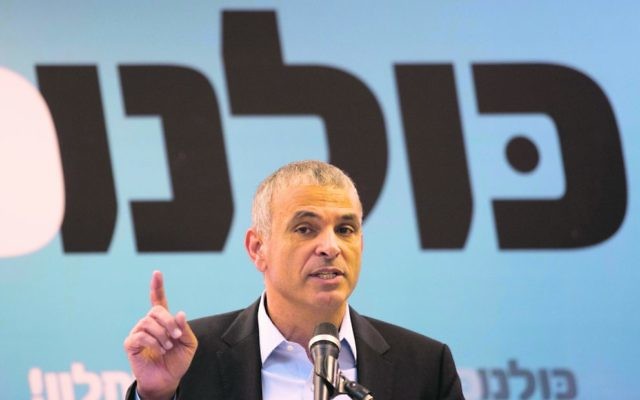Kahlon meets Palestinian PM
A RARE warming in Israeli-Palestinian relations has begun over the last few days, with an Israeli minister visiting Ramallah and an unexpected declaration by a senior Palestinian official.
A RARE warming in Israeli-Palestinian relations has begun over the last few days, with an Israeli minister visiting Ramallah and an unexpected declaration by a senior Palestinian official.
Israel’s Finance Minister Moshe Kahlon surprised both sides of the conflict by visiting Palestinian Prime Minister Rami Hamdallah at his office last week. He went with a list of confidence-building measures that he has been working on since Donald Trump’s Israel visit last month.
There hasn’t been an Israeli ministerial visit to Ramallah in more than a decade, and Kahlon’s meeting is thought to show that both the Palestinians and Israelis are taking Trump’s push for peace seriously. While Kahlon comes from the centre- right Kulanu party, not the ruling Likud, his visit is believed to have been coordinated with Israeli Prime Minister Benjamin Netanyahu.
Kahlon and Hamdallah discussed prospects for peace as well as the confidence-building measures, which focus on economics and construction.
“Both the Israelis and Palestinians are scared of being blamed by President Trump if he fails in his express wish to make the ‘ultimate deal’ between Israel and the Palestinians,” Jonathan Rynhold, a political scientist from Bar Ilan University told The AJN.
He said that Israel and the Palestinians are making gestures to the other “to demonstrate that they are serious about peace” – so that if Trump’s plan doesn’t pan out they won’t be held responsible.
As well as leader-to-leader talks, there has been a strong pro- peace message from a prominent Palestinian politician to the Israeli public. Jibril Rajoub, a close ally of the Palestinian President Mahmoud Abbas, said several times in an interview with Israeli television that his side is ready for peace.
He also moved away from the common Palestinian claim that all land captured by Israel in 1967 must become part of a Palestinian state. Discussing the Western Wall he said: “We understand that this is a holy place for Jews and at the end of the matter it needs to be under Jewish sovereignty – there’s no argument about this.”
This was a significant shift, especially given that the Palestinians have tried, in recent years, to obscure the historic connection between Jews and the Kotel, including through two controversial resolutions at UNESCO last year and an official 2010 Palestinian report denying the connection.
The rest of the interview was optimistic about peace. Rajoub, one of the top figures in the Fatah movement, said: “I think that Trump represents an opportunity for us and for the Israeli side.” Israelis “have a partner on the Palestinian side”, he insisted, saying: “We are going towards a historic compromise between two peoples, two states for two peoples. The time has come. We need to do it today.”
NATHAN JEFFAY


comments